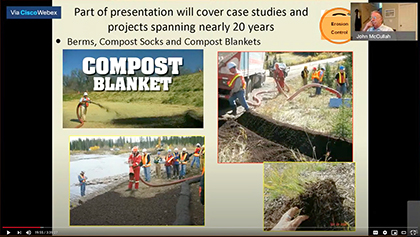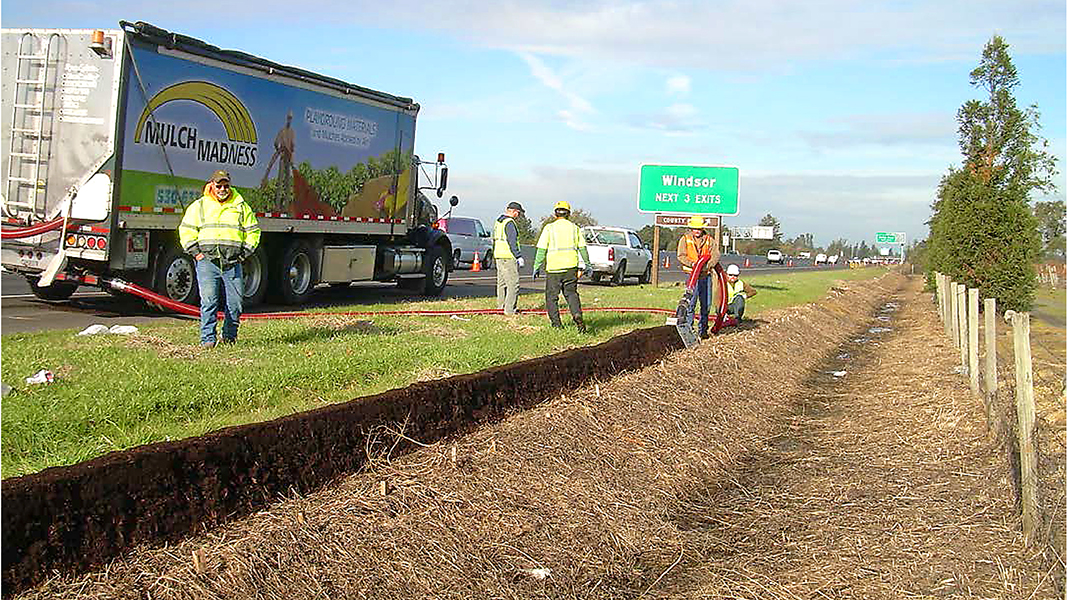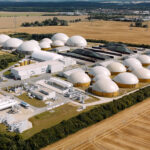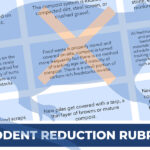The Caltrans (California Dept. of Transportation) Landscape Architecture Program, in partnership with CalRecycle, University of California Riverside, University of Washington, Filtrexx Sustainable Technologies, Salix Applied Earthcare, US Composting Council, California Compost Coalition, and R. Alexander Associates, Inc., presented two half-day workshops in late August that focused on use of compost-based best management practices (BMPs) to improve roadside revegetation, control erosion, filter storm water, reduce runoff, and improve storm water quality. In addition to rolling out innovative methods to improve water quality, the workshops provided attendees with the opportunity to ask questions of a diverse team of experts. Recordings of the workshops are available on You Tube.
 Day 1 of the workshop covered (in the order presented to aid in You Tube viewing): Relevant legislation and the role of compost-based BMPs in meeting California’s sustainability goals and mandates; Characteristics and uses of mulches, soil amendments, and organic fertilizers; Use of compost BMPs in treating storm water; Caltrans compost specifications and compost-based BMPs for roadside application; and Compost quality testing and reporting.
Day 1 of the workshop covered (in the order presented to aid in You Tube viewing): Relevant legislation and the role of compost-based BMPs in meeting California’s sustainability goals and mandates; Characteristics and uses of mulches, soil amendments, and organic fertilizers; Use of compost BMPs in treating storm water; Caltrans compost specifications and compost-based BMPs for roadside application; and Compost quality testing and reporting.
Day 2 of the workshop focused on actual projects. These included (in the order presented): Compost applications for storm water projects throughout California; Case studies on applications and use of compost on various projects from California to New Zealand to the Canadian Rockies, spanning 15 years; How Caltrans uses compost to protect water quality, establish vegetation and build healthy soils; Lessons learned on applications and use of compost on various Caltrans projects throughout the state; and Washington state’s Soils for Salmon Program and the water quality benefits of compost. Day 2 ended with a panel discussion and Q&A with participants.
Workshop presenters included university professionals, researchers, soil scientists, California composting industry professionals, Caltrans landscape architects, and other subject matter experts. The workshop was intended for Caltrans district designers, including landscape architects, biologists, and storm water quality coordinators, Caltrans contractors, and others involved in improving storm water quality.













